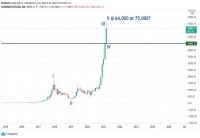|
Opalesque Industry Update - The large majority (70-80%) of North American and Asia-Pacific LPs believe their private equity portfolios need modifying to prepare them for the next economic downturn, according to Coller Capital's Global Private Equity Barometer. European investors are more sanguine, with only 45% believing their portfolios need modification.
Despite this difference, nine out of ten LPs acknowledge the significant risks to their medium-term PE returns posed by today's macro environment and high asset prices. When the cycle does turn, almost all LPs expect to see a significant divergence in performance between GPs and between funds. "We have experienced one of the longest stock market expansions in history," said Jeremy Coller, chief investment officer of Coller Capital, "but investors know that winter is coming. They are telling us that differences in the quality of managers' strategies and teams will again lead to a significant divergence of returns between GPs - just as it did in the GFC." Unsurprisingly, investors also expect a divergence between GPs in fund terms and conditions over the next five years. And they generally expect to see the pendulum swinging in investors' favour. Three in five LPs expect an overall reduction in management fees, and one in five expect an overall reduction in carried interest rates. Private equity and climate change There are marked differences in LPs' responses to climate change dependent on their home geography. Almost three in five investors in Europe and Asia-Pacific plan to modify their portfolios to combat climate change in the next five years - but less than a third of North American investors plan a similar change. Limited Partners who do expect change to their investment strategies are broadly planning to replace oil & gas exposure with investment in renewable energy and climate-friendly products and services. Private equity's reputation and 'licence to operate' Many investors - and a significant majority of North American LPs especially - say that criticism of private equity by politicians and the media has recently grown louder. Moreover, three-quarters of investors in all regions of the world say it is incumbent on national and regional VCAs (industry associations for PE and VC) to do more to explain the industry and defend its 'licence to operate'. Asked whether 'explaining the industry' implies that GPs should release more information about their portfolio companies, LPs are less sure. They are fairly evenly split as to whether the industry should release information on their portfolio company decisions to a wider group of stakeholders, or whether the industry's current levels of confidentiality are necessary for GPs to be able to effect rapid change. Retail money in private equity Around half of LPs believe that private equity will see an influx of 'retail' money from private individuals, (e.g. 401K or equivalent), in the next few years - however, investors are far from convinced that this would be a good thing. Three-quarters of Limited Partners think private equity investing is not suitable for private investors. On the other hand, speculation that broad-based asset managers will enter the industry and disrupt private equity's business model fails to convince - three-quarters of LPs say this is unlikely in the next five years. Emerging private equity markets Asia offers by far the most attractive investment opportunities for emerging market private equity over the next three years, according to investors. Two-thirds or more of LPs see attractive opportunities in South East Asia, China/Hong Kong/Taiwan, and India - compared with approximately one-third of investors who see good opportunities in Central & Eastern Europe and Latin America. Judgements like these are clearly important, because two in five LPs report that they have been disappointed by the performance of their emerging market private equity portfolios over time - a picture that remains almost unchanged from the Barometer of Winter 2015-16. Private debt Limited Partner commitments to private debt funds appear to be plateauing. Equal proportions of LPs plan to accelerate and to slow their pace of commitments to private debt funds in the next two years. (In the Barometer of Winter 2015-16, around three times as many LPs planned to accelerate commitments as to slow them.) Certainly, LPs see significant challenges ahead for private debt. Around three-quarters of investors foresee a risk both of increased default rates and of lower recovery rates as a result of more cov-lite structures. More generally, they worry that the increasing number of debt providers will lead to lower returns across the board. In such an environment, only one in six LPs say they are likely to invest in a debut private debt funds from a new manager. Private equity commitments and returns Investors are more frequently having to settle for smaller commitments to their chosen private equity funds than they did in the past. Over half of LPs have had their requested commitments 'scaled back' on multiple occasions in the past 12 months (compared with 42% of LPs in 2015). The areas where this is happening most often are venture capital and mid-market buyout funds, investors say. Investor demand for venture fund commitments in particular - especially in North America - is not surprising. For the first time in the Barometer's history, investors are expecting higher returns from North American venture in the next few years than from North American buyouts. Co-investments Co-investing is continuing to grow in popularity. Almost 70% of private equity investors now co-invest alongside GPs, and some 44% of LPs actively pursue co-investment opportunities. (Indeed, among the largest LPs over one-third actively give preference to managers likely to offer them co-investments.) The commonest reason LPs give for not doing more co-investments is a lack of internal resources to meet GPs' investment deadlines.
|
Industry Updates
LPs' portfolios are not ready for economic downturn
Monday, December 02, 2019
|
|





 RSS
RSS








